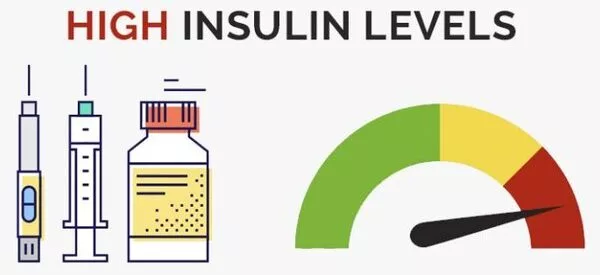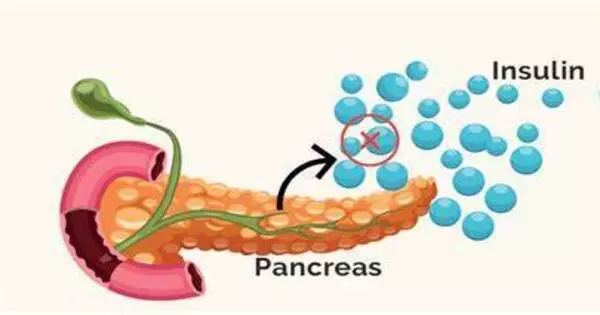Insulin is a hormone produced by the pancreas that plays an important role in blood sugar regulation. According to some studies, conditions associated with insulin resistance, such as obesity and type 2 diabetes, may be linked to an increased risk of pancreatic cancer. Insulin resistance can cause the pancreas to produce more insulin in an attempt to control blood sugar levels.
The first detailed explanation for why people with obesity and Type 2 diabetes are more likely to develop pancreatic cancer has been published. The study found that high insulin levels stimulate pancreatic acinar cells, which produce digestive juices. Overstimulation causes inflammation, which transforms these cells into precancerous cells. The findings, according to the researchers, may have implications for other cancers associated with obesity and Type 2 diabetes, where elevated insulin levels may also play a role in disease initiation.
A new study from the Faculty of Medicine at the University of British Columbia reveals a direct link between high insulin levels, which are common in patients with obesity and Type 2 diabetes, and pancreatic cancer.
The study, published in Cell Metabolism, is the first to provide a detailed explanation for why people with obesity and Type 2 diabetes are more likely to develop pancreatic cancer. The study found that high insulin levels stimulate pancreatic acinar cells, which produce digestive juices. Overstimulation causes inflammation, which transforms these cells into precancerous cells.
Alongside the rapid increase in both obesity and Type 2 diabetes, we’re seeing an alarming rise in pancreatic cancer rates. These findings help us understand how this is happening and highlight the importance of keeping insulin levels within a healthy range, which can be accomplished with diet, exercise, and in some cases medications.
Dr. James Johnson
“Alongside the rapid increase in both obesity and Type 2 diabetes, we’re seeing an alarming rise in pancreatic cancer rates,” said co-senior author Dr. James Johnson, a professor in the Department of cellular and Physiological Sciences and interim director of the Life Sciences Institute at UBC. “These findings help us understand how this is happening, and highlight the importance of keeping insulin levels within a healthy range, which can be accomplished with diet, exercise, and in some cases medications.”
The study focused on pancreatic ductal adenocarcinoma (PDAC), the most common type of pancreatic cancer and the most aggressive, with a five-year survival rate of less than 10%. Pancreatic cancer is becoming more common. PDAC is expected to be the second leading cause of cancer-related deaths by 2030.
Obesity and Type 2 diabetes had previously been identified as risk factors for pancreatic cancer, but the precise mechanisms by which this occurred were unknown. This new research illuminates the role of insulin and its receptors in this process.

“We found that hyperinsulinemia directly contributes to pancreatic cancer initiation through insulin receptors in acinar cells,” said Dr. Anni Zhang, the study’s first author who recently graduated with their PhD from UBC. “The mechanism involves increased production of digestive enzymes, leading to heightened pancreatic inflammation.”
While insulin is well known for its role in blood sugar regulation, this study highlights its importance in pancreatic acinar cells. The findings show that insulin supports the physiological function of these cells in producing digestive enzymes that break down fat-rich foods, but at high levels, its increased action can inadvertently promote pancreatic inflammation and the development of precancerous cells.
The findings could pave the way for new cancer prevention strategies and even therapeutic approaches that target insulin receptors in acinar cells.
“We hope this work will change clinical practice and help advance lifestyle interventions that can lower the risk of pancreatic cancer in the general population,” said co-senior author Dr. Janel Kopp, assistant professor in the department of cellular and physiological sciences at UBC. “This research could also pave the way for targeted therapies that modulate insulin receptors to prevent or slow the progression of pancreatic cancer.”
In collaboration with researchers at BC Cancer and the Pancreas Centre BC, the team has launched a clinical trial to help patients with PDAC control their blood sugar and circulating insulin levels with the assistance of an endocrinologist.
According to the researchers, the findings may have implications for other cancers associated with obesity and Type 2 diabetes, where elevated insulin levels may also play a role in disease initiation.
“Colleagues in Toronto have shown similar connections between insulin and breast cancer,” says Dr. Johnson. “In the future, we hope to determine whether and how excess insulin might contribute to other types of obesity- and diabetes-driven cancers.”
















